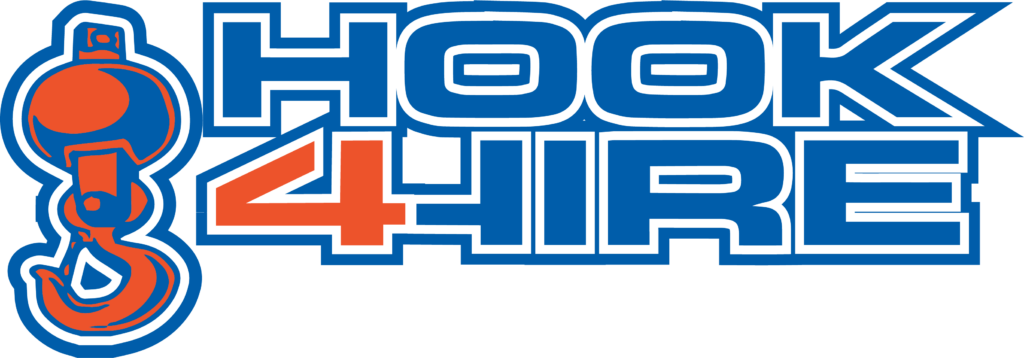The success of every lifting project hinges significantly on the capability and expertise of crane operators. Certified crane operators not only drive the operations but also ensure the highest safety and efficiency levels throughout the project lifecycle. As a provider of modern mobile crane services with unwavering dedication to industry safety standards, Hook4Hire knows the importance of having experienced, certified crane operators on board. In this blog, we aim to spotlight the pivotal role these professionals play in ensuring successful, safe, and efficient mobile crane operations.
Certified crane operators occupy a crucial role in the construction and heavy lifting industry. They are responsible for controlling cranes to lift, move, and position loads, such as machinery, equipment, products, and solid or bulk materials. Their job is highly specialized and calls for professional training and certification to ensure that all operations align with industry safety regulations and best practices.
One of the key responsibilities of a crane operator involves planning lifts. They must calculate load weights, check equipment, and clear obstacles to ensure safe lifting operations. During the operation, they need to make critical decisions in real time, including adjusting crane movements based on changing conditions and communicating effectively with other team members to coordinate lifts.
But the role of a certified crane operator doesn’t stop at hands-on operations. They are also actively involved in routine equipment inspections and preventive maintenance procedures. These activities help to identify potential issues before they escalate into significant problems that could compromise project timelines and worker safety.
Stay with us as we delve deeper into the role and responsibilities of certified crane operators in our industry. Our aim is to underline their crucial contributions and to highlight why it’s paramount to engage certified professionals for your mobile crane operations. Whether you’re a project manager, contractor, or someone interested in joining the ranks of crane operators, this informative piece is designed to provide valuable insights and understanding.
Understanding the Role of Certified Crane Operators in Ensuring Project Success
Education, Training, and Certification Requirements
To become a certified crane operator, individuals must complete a rigorous training program and meet specific certification requirements. Training programs typically cover topics such as crane operation, rigging, workplace safety, equipment maintenance, and industry regulations. Upon completing the training program, individuals must pass a written exam and a practical skills test to demonstrate their knowledge and competence.
Certification organizations like the National Commission for the Certification of Crane Operators (NCCCO) and the National Center for Construction Education and Research (NCCER) oversee the certification process to ensure that crane operators possess the necessary skills, experience, and knowledge to safely operate cranes. These certifications are not only crucial to the crane operator’s career but also play a vital role in maintaining safety standards and best practices within the industry.
Load Planning and Pre-Lift Preparations
A critical aspect of a crane operator’s role is to engage in load planning and pre-lift preparations. These activities involve calculating load weights and dimensions, evaluating site conditions, identifying potential hazards, and ensuring that the crane is set up correctly. In addition to using their own knowledge and experience, crane operators may also consult with engineers, architects, and project managers to develop the most efficient and safest lift plans.
Another essential element of pre-lift preparations is ensuring that the crane, rigging, lifting accessories, and other equipment are in excellent working condition. To accomplish this, crane operators must conduct thorough pre-operation inspections and follow the manufacturer’s guidelines for equipment maintenance.
Crucial On-Site Responsibilities
Once on-site, crane operators play a vital role in executing lifts safely and efficiently. They are responsible for controlling crane movements, making necessary adjustments to account for changing conditions, managing the crane’s stability, and ensuring the load remains secure during transit.
A significant aspect of a certified crane operator’s on-site responsibilities also includes clear and effective communication with other team members, including signal persons and ground crews. Utilizing hand signals, radios, or other communication devices, crane operators must maintain constant lines of communication to precisely coordinate each stage of the lift.
In addition to managing tasks related to lifting, certified crane operators also play a key role in keeping the job site safe for other workers. They must remain vigilant and report any hazards, incidents, or near misses. In doing so, they actively contribute to maintaining high levels of safety and professionalism on the job site.
Continuing Education and Skill Development
As with any profession, certified crane operators must continually adapt their skills to keep pace with industry advancements and new regulations. Regularly engaging in ongoing education and skill development programs ensures that they remain current in their knowledge and can maintain a high standard of expertise in their field.
These programs cover updates to industry safety regulations, changes in crane technology, and the latest best practices. By staying informed and up-to-date, certified crane operators contribute to the overall safety and success of mobile crane operations.
The Essential Role of Certified Crane Operators
The role of certified crane operators in the construction and heavy lifting industry is crucial to ensuring project success, safety, and efficiency. They bear significant responsibility in planning lifts, maintaining equipment, executing lifts safely, and keeping the job site safe for all workers. Their knowledge, expertise, and commitment to ongoing education and skill development are what sets them apart and makes them a vital component of any successful project.
Don’t let your industrial projects suffer due to lack of proper equipment. Choose Hook4Hire’s crane services for efficient and timely completion. Contact us now to schedule your crane rental and experience the highest level of safety and professionalism in the industry.
